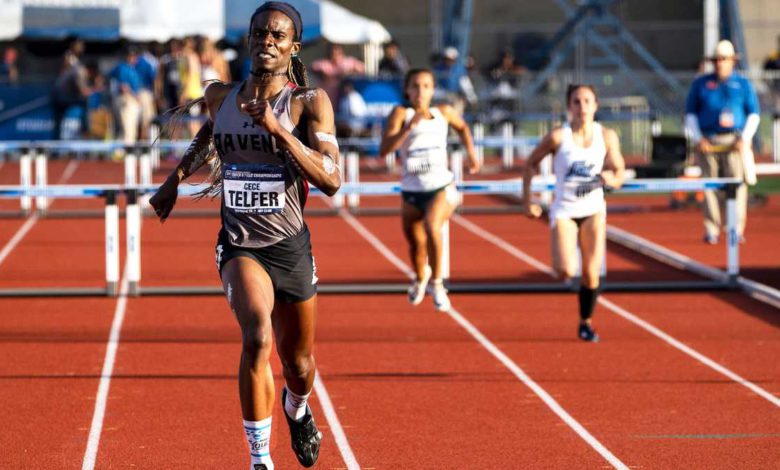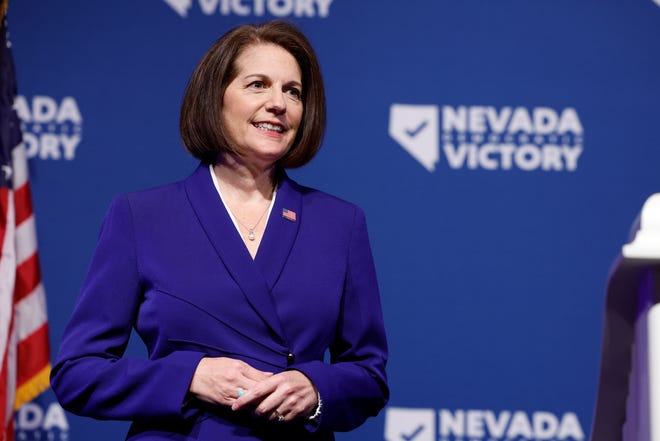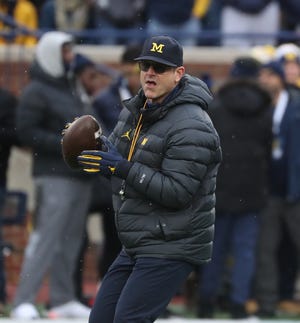
Video above from 2019: CeCe Telfer wins women's 400-meter hurdles at NCAA championshipIn 2019, track and field athlete CeCe Telfer became the first openly transgender woman to win an NCAA title (in the 400m hurdles, her signature event).Now, she's got her eyes on the top podium in the world — the 2021 Tokyo Olympic games. If she qualifies, she could become one of the first openly transgender athletes to compete in any Olympic event, ever. Even if she doesn't, Telfer is already making history.Outside of working tirelessly at her sport, she's using her voice to create change in the world of athletics, a world that has historically been riddled with discrimination and prejudice against trans athletes. It's a reality Telfer knows all too well. Though her college track team at Franklin Pierce University was supportive of her running, as she shares in a profile for the New York Times, she struggled to find a coach who would guide her on her Olympic journey, as well as adequate training resources.She’s also been subjected to additional regulations: As mandated by the International Olympic Committee’s eligibility requirements, in order to compete, she had to suppress her testosterone levels and sustain them for at least a year. Though there is little conclusive evidence to support the notion that transgender athletes have a competitive advantage in sports, it hasn’t stopped a recent wave of restrictive, anti-trans sports bans and laws (up to 80) across various levels of competition in the United States.Earlier this month, Florida passed legislation that bars trans women from competing on women’s teams in public schools and colleges. The bans are discriminatory and stigmatizing to transgender athletes, many of whom just want to do what they love without constant comment and questions. As Telfer told the New York Times, a huge motivator for her to compete is to empower young transgender athletes to chase their own dreams. "It’s important for me to do it for my people — whether it be women, Black people, transgender people, LGBTQ people —anybody who is scrutinized and oppressed."At this point, it's unclear whether or not Telfer will get the chance to compete at the Olympic trials, which begin this weekend in Eugene, Oregon. (Her event is on June 25th.) To qualify to race in the trials, athletes must have a time of 56.50, and Telfer's best clocks in a second behind.However, due to pandemic-related training challenges, USA Track and Field has stated that as many as 28 athletes could race at trials; Telfer is 28th in the field. Regardless of whether she races at trials or ultimately makes the Olympic team (she'd have to finish in the top three at trials), Telfer has changed the future of athletics. She’s one of a handful of openly transgender Olympic hopefuls whose journey serves as a source of inspiration for other aspiring athletes. (Trans cycling athlete Chelsea Wolfe was just selected as an alternate for the U.S. Women’s BMX Freestyle team.)Telfer is already lending her voice and sharing her story in hopes of creating long-lasting, systemic change in the world of both noncompetitive and professional athletics. She is working to make sports a safe space for everyone who wishes to compete. Win or lose, Telfer is already blazing the track (and, trail!) for a more inclusive future. And that's something truly medal-worthy.
Video above from 2019: CeCe Telfer wins women's 400-meter hurdles at NCAA championship
In 2019, track and field athlete CeCe Telfer became the first openly transgender woman to win an NCAA title (in the 400m hurdles, her signature event).
Now, she's got her eyes on the top podium in the world — the 2021 Tokyo Olympic games. If she qualifies, she could become one of the first openly transgender athletes to compete in any Olympic event, ever. Even if she doesn't, Telfer is already making history.
Outside of working tirelessly at her sport, she's using her voice to create change in the world of athletics, a world that has historically been riddled with discrimination and prejudice against trans athletes.
It's a reality Telfer knows all too well. Though her college track team at Franklin Pierce University was supportive of her running, as she shares in a profile for the New York Times, she struggled to find a coach who would guide her on her Olympic journey, as well as adequate training resources.
She’s also been subjected to additional regulations: As mandated by the International Olympic Committee’s eligibility requirements, in order to compete, she had to suppress her testosterone levels and sustain them for at least a year.
Though there is little conclusive evidence to support the notion that transgender athletes have a competitive advantage in sports, it hasn’t stopped a recent wave of restrictive, anti-trans sports bans and laws (up to 80) across various levels of competition in the United States.
Earlier this month, Florida passed legislation that bars trans women from competing on women’s teams in public schools and colleges. The bans are discriminatory and stigmatizing to transgender athletes, many of whom just want to do what they love without constant comment and questions.
As Telfer told the New York Times, a huge motivator for her to compete is to empower young transgender athletes to chase their own dreams. "It’s important for me to do it for my people — whether it be women, Black people, transgender people, LGBTQ people —anybody who is scrutinized and oppressed."
At this point, it's unclear whether or not Telfer will get the chance to compete at the Olympic trials, which begin this weekend in Eugene, Oregon. (Her event is on June 25th.) To qualify to race in the trials, athletes must have a time of 56.50, and Telfer's best clocks in a second behind.
However, due to pandemic-related training challenges, USA Track and Field has stated that as many as 28 athletes could race at trials; Telfer is 28th in the field.
Regardless of whether she races at trials or ultimately makes the Olympic team (she'd have to finish in the top three at trials), Telfer has changed the future of athletics. She’s one of a handful of openly transgender Olympic hopefuls whose journey serves as a source of inspiration for other aspiring athletes. (Trans cycling athlete Chelsea Wolfe was just selected as an alternate for the U.S. Women’s BMX Freestyle team.)
Telfer is already lending her voice and sharing her story in hopes of creating long-lasting, systemic change in the world of both noncompetitive and professional athletics. She is working to make sports a safe space for everyone who wishes to compete.
Win or lose, Telfer is already blazing the track (and, trail!) for a more inclusive future. And that's something truly medal-worthy.
Source link









